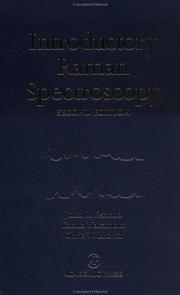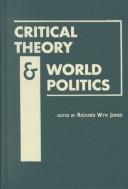| Listing 1 - 8 of 8 |
Sort by
|
Book
ISBN: 1349887846 1137591110 1137591129 Year: 2016 Publisher: London : Palgrave Macmillan UK : Imprint: Palgrave Macmillan,
Abstract | Keywords | Export | Availability | Bookmark
 Loading...
Loading...Choose an application
- Reference Manager
- EndNote
- RefWorks (Direct export to RefWorks)
This book provides a semiotic analysis of 'scenes', powerful vehicles for introducing new ideas, perspectives and behaviours, as a concept. In particular, it examines the types of scene that exist; explores their effectiveness in spreading new ideas; and considers their vital role in introducing originality and difference in modern society.
Social sciences. --- Culture --- Literature --- Sociology. --- Social sciences --- Sports --- Social Sciences. --- Sociology, general. --- Cultural and Media Studies, general. --- Literary Theory. --- Cultural Theory. --- Social Theory. --- Sociology of Sport and Leisure. --- Study and teaching. --- Philosophy. --- Sociological aspects. --- Semiotics. --- Reality. --- Semeiotics --- Semiology (Linguistics) --- Philosophy --- Truth --- Nominalism --- Pluralism --- Pragmatism --- Semantics --- Signs and symbols --- Structuralism (Literary analysis) --- Culture-Study and teaching. --- Literature-Philosophy. --- Social sciences-Philosophy. --- Sports-Sociological aspects. --- Culture—Study and teaching. --- Literature—Philosophy. --- Social sciences—Philosophy. --- Sports—Sociological aspects. --- Social theory
Book
ISBN: 1787543552 1787543536 1787543560 1787543544 9781787543539 9781787543553 9781787543560 Year: 2018 Publisher: Bingley Emerald Publishing
Abstract | Keywords | Export | Availability | Bookmark
 Loading...
Loading...Choose an application
- Reference Manager
- EndNote
- RefWorks (Direct export to RefWorks)
In a world beset with problems, how can we encourage people to act differently? It seems almost daily that new studies emerge telling us how human action is causing planetary degradation, how changes to our diets could lead to us living longer healthier lives, or that financially we are in danger of returning to the debt related crises of the previous decade. At the same time how many of us adjust our behaviour in response to such information? In this new book Professor Chris Brown explores people's reactions to Optimal Rational Positions: propositions that set out requirements for change. For example the need to reduce carbon emissions to minimize the impacts of climate change is an Optimal Rational Position; as is the need to engage in 30 minutes of exercise a day, to eat more healthily or to drink less alcohol. It seems obvious that we should want to pursue Optimal Rational Positions because they espouse the types of behaviours that will enable us to live healthier, happier or more productive lives; that can improve the lives and outcomes of others; or that can help us ensure social and environmental sustainability. Yet at the same time we often fail to change our behaviours to those which might be most optimal. Outlining an exciting and innovative route forward, and with real-life case studies from education, 'How Social Science Can Help Us Make Better Choices' provides a new way to think about why people make the choices they make and, vitally, the role social science can play in response.
Social sciences. --- Practical reason. --- Practical rationality --- Practical reasoning --- Rationality, Practical --- Reasoning, Practical --- Reason --- Behavioral sciences --- Human sciences --- Sciences, Social --- Social science --- Social studies --- Civilization --- Social psychology --- Social change --- Social sciences --- Social Science --- Social issues & processes. --- Philosophy. --- Sociology / Social Theory. --- Social philosophy --- Social theory
Book
ISBN: 178743673X 1787436403 1787436411 9781787436404 9781787436411 Year: 2018 Publisher: Bingley, UK Emerald Publishing
Abstract | Keywords | Export | Availability | Bookmark
 Loading...
Loading...Choose an application
- Reference Manager
- EndNote
- RefWorks (Direct export to RefWorks)
The potential for research evidence to improve educational policy and practice is immense. Yet internationally, research used by teachers and governments is currently sporadic rather than systematic. In response, this book brings together seven chapters that encompass a range of research projects and ideas in relation to evidence-informed policy and practice (EIPP) in education. These projects and ideas all share a single overarching purpose: providing insight into how EIPP in education can be achieved. Underpinning each chapter is the notion that the world is complex. If we are to introduce change in any meaningful way into it, we therefore have to understand and respond to this complexity. This means then that we cannot simply assume that, because it seems rational or common sense for teachers and policy-makers to use research to help improve their decision making or acts of praxis, that they will do so. Correspondingly, the book represents a holistic journey of discovery and experimentation: of an engagement with the work of thinkers and authors from Eco to Flyvbjerg, via Habermas, Foucault and Aristotle; of ideas ranging from phronesis to trust and social relations; and with diverse research methodologies, including social network analysis and decision tree predictive modelling. The result is both descriptive and prescriptive: as well as outlining the research and its findings, practical suggestions and strategies for achieving evidence use both in educational policy and practice are provided throughout.
Education and state. --- Education --- Education policy --- Educational policy --- State and education --- Social policy --- Endowment of research --- Government policy --- Education and state --- Research. --- Educational research
Book
ISBN: 1838677216 1838677194 9781838677190 9781838677213 1838677224 9781838677220 Year: 2020 Publisher: Bingley, England : Emerald Publishing,
Abstract | Keywords | Export | Availability | Bookmark
 Loading...
Loading...Choose an application
- Reference Manager
- EndNote
- RefWorks (Direct export to RefWorks)
As accountability increases while budgets decrease, a growing number of school leaders and policy-makers are turning their attention to Professional Learning Networks (PLNs) as a way of improving education and student outcomes in schools and across school systems. Although PLNs can have real benefits for teachers and students, a number of underpinning conditions need to be in place to ensure these networks have real impact. Key amongst these conditions is effective leadership. The role of school leaders is crucial to ensure that there is meaningful participation by their teachers in network activity and that this participation makes a difference within teachers' 'home' schools. In this timely book Chris Brown addresses the knowledge gap about how school leaders can effectively develop, support, and sustain PLNs within and across schools, drawing on two key case studies from England and Germany. Evidence-based, accessible, and engaging, with key takeaways for practitioners in every chapter, The Networked School Leader is crucial reading for school leaders, system leaders and education researchers working close-to-practice.
Book
ISBN: 1800436637 1800436602 9781800436626 9781800436633 1800436629 9781800436602 Year: 2021 Publisher: Bingley: Emerald,
Abstract | Keywords | Export | Availability | Bookmark
 Loading...
Loading...Choose an application
- Reference Manager
- EndNote
- RefWorks (Direct export to RefWorks)
The post-pandemic world provides all of us with the opportunity to think differently about what we want for society. In Educating Tomorrow, Chris Brown and Ruth Luzmore explore what a post-Covid 'blank slate' education system could look like.
Educational change. --- Change, Educational --- Education change --- Education reform --- Educational reform --- Reform, Education --- School reform --- Educational planning --- Educational innovations --- Educational change

ISBN: 0122541057 9786611036638 1281036633 0080509126 9781281036636 9780080509129 9780122541056 Year: 2003 Publisher: Amsterdam ; Boston : Academic Press,
Abstract | Keywords | Export | Availability | Bookmark
 Loading...
Loading...Choose an application
- Reference Manager
- EndNote
- RefWorks (Direct export to RefWorks)
This second edition of Introductory Raman Spectroscopy serves as a guide to newcomers who wish to become acquainted with this dynamic technique. Written by three acknowledged experts this title uses examples to illustrate the usefulness of the technique of Raman spectroscopy in such diverse areas as forensic science, biochemistry, medical, pharmaceutical prescription and illicit drugs. The technique also has many uses in industry.Updated Applications chapter· Demonstrated the versatility and utility of Raman spectroscopy in problem solving in science· Serves as an excellent ref
Raman spectroscopy. --- 544.174.5 --- Raman spectroscopy --- CARS spectroscopy --- Coherent anti-Stokes Raman spectroscopy --- Spectroscopy, Raman --- Spectrum analysis
Book
ISBN: 0228012554 0228012562 Year: 2022 Publisher: Montreal, Quebec : McGill-Queen's University Press,
Abstract | Keywords | Export | Availability | Bookmark
 Loading...
Loading...Choose an application
- Reference Manager
- EndNote
- RefWorks (Direct export to RefWorks)
In late 2017 and early 2018, South Africa and Zimbabwe both saw the unexpected fall of their sitting presidents, Jacob Zuma and Robert Mugabe. New Leaders, New Dawns? explores these political transitions and the way they were received, revealing that despite what the new leaders may have promised, a "new dawn" has not yet arrived in southern Africa.
ANC. --- BRICS. --- Brazilian. --- Cultural. --- Economy. --- Elite. --- Global. --- Hegemony. --- India. --- January jambanja. --- Labour. --- Liberation. --- Minerals. --- Mining. --- Mozambique. --- Mugabe. --- Precarious. --- Regional. --- South. --- Zuma. --- organizing. --- trade union. --- South Africa --- Zimbabwe --- Economic conditions --- Politics and government


ISBN: 1588269574 1588261654 9781588261656 9781588269577 9781555878023 Year: 2022 Publisher: Boulder
Abstract | Keywords | Export | Availability | Bookmark
 Loading...
Loading...Choose an application
- Reference Manager
- EndNote
- RefWorks (Direct export to RefWorks)
This book represents the first attempt to bring together the leading critical theorists of world politics to discuss both the promise and the pitfalls of their work. The authors range broadly across the terrain of world politics, engaging with both theory and emancipatory practice. Critiques by two scholars from other IR traditions are also included. The result is a seminal statement of the critical theory approach to understanding world politics, an essential point of reference for future work in the field.
International relations --- Critical theory. --- Critical social theory --- Critical theory (Philosophy) --- Critical theory (Sociology) --- Negative philosophy --- Criticism (Philosophy) --- Philosophy, Modern --- Rationalism --- Sociology --- Frankfurt school of sociology --- Socialism --- Philosophy.
| Listing 1 - 8 of 8 |
Sort by
|

 Search
Search Feedback
Feedback About UniCat
About UniCat  Help
Help News
News